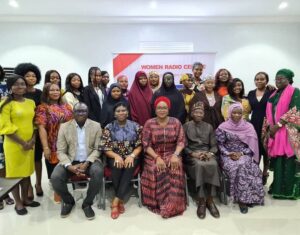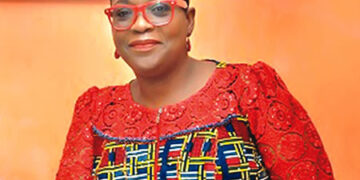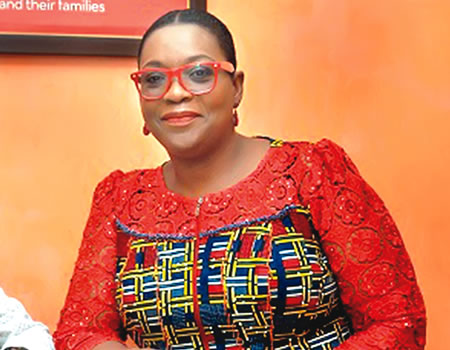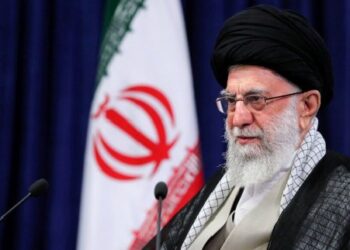Toun Okewale Sonaiya is the Chief Executive Officer of WFM 91.7, the first female-centric radio station in Nigeria, aimed at improving the capacity of women in media. In this interview with our correspondent Ere-Ebi Agedah, on the sidelines of a just concluded one-week training for women journalists which took place in Arepo Nigeria, she speaks on her passion for women capacity building in investigative reporting.
What informed your decision to dive into women capacity building?
Women are human beings and most times issues surrounding women are treated as if they are peculiar, different, extra-ordinary and we are saying that because women are human beings and their stories are not told, their stories are relegated, let’s use our own power to tell our own story
For people to know that women are treated unfairly there is no justice, so when we x-ray and bring these issues out, we can see that we have been unfair to women. This is what informed the idea to train female journalists to learn how to investigate and report issues, issues that reflect weaknesses in the system, issues that are under covered, under reported.
What has been your major challenge in working with women?
I would not say I have challenges, it’s the same challenges working with men, so it’s not like there are peculiar challenges working with women. For me whether you are a man or a woman, the concern is for you to deliver on the task that is given to you at your deadline. In fact, I will say that I have amazing women who even at childbirth are still working, even when they are experiencing issues that are peculiar to women, like the monthly visitors you still see them working hard and performing their duties. You see that women do what they have to do, so it’s not about challenges with working with women, rather about general challenges working with men. I can even tell you that from my years of working I have found women more loyal, women are more dedicated, and very honest, when a woman puts her mind to achieve a thing she would take it up like it’s her own business. I am not saying that men are not honest, I am just saying that women are more committed and they will stay with you through thick and thin and for us at Women Radio Centre, it is women who have been holding it down.
What is your opinion on women supporting women?
The same way you have men that do not support men, it’s the same way you have women who do not support other women. That is not an issue. For me, I do not think about women who do not support other women because I focus on those who are ready to support my agenda, so I go all out and focus on those who are willing. At WRC, one advise I do give is, do not focus on those who are not assisting but channel that energy to those who have made themselves available to improve you, to impact on you and to give you their time to make you better. I have a good support system from my family, staff, donor agencies, professionals. So, it’s my duty that I give back to other women, young people who want to take up from me. I am really hoping that when I retire which is very soon, the woman who will be a better leader, manager would come and take over what I am doing,
In your opinion do you think women journalists are doing enough, what more do you expect?
I can tell you that women journalists are doing a lot and for the ones at WRC, some of which have never done broadcast or journalism before, they are the best in he country, listening to them I am inspired and I know a lot of female journalists who write a lot of good analytic reports, fine and objective and write seamlessly, in print, TV, new media. Women are doing fantastic but we just need to give them more opportunities to be editors and publishers. We need to have more female radio owners, that is what we need to have and if it means collaborating, people putting their monies together and put a woman at the top and we will see amazing results. For me we need more female journalists who need to be supported, we have the affirmative action, if you have a female reporter that is good and she is pregnant and she wants to work from home, please give her the tools to enable her work from home. I think women journalists are doing well but we need more women to do more investigative journalism because we have less women doing this, we need more women to do reportage on investigation.

What do you think the government can do to support women business?
The government should provide us with uninterrupted electricity, if we have uninterrupted power, it will make our job easier. During our training we have been talking about Wi-Fi, our computers, internet, if we have uninterrupted power we will be able to do more. And I also feel the government can be deliberate to say that we want to invest in female-centric issues and programs and allow women to produce, direct and take full control because these are issues that relate to them and they are the ones who can explain, analyze and research and tell the story better, so I think that the government can invest more in media, broadcast and journalism.
You have just concluded a training for female journalists on investigative reporting, what do you expect from them?
Let me first of all thank all the women who were selected and came for the training. Out of 810 applicants we selected the best of 20 from across the six geo political zones in Nigeria, these ladies including yourself gave their time, asked intelligent questions. These are women who were participatory and engaging. The women showed true commitment, let me just thank the faculty and its team led from Bayero University Kano for the knowledge they have brought on board and shared with these ladies.
Also all our facilitators and investigative reporters, I just hope that the women can go out with the knowledge of what they have learnt to go and report stories that affect women in their community, stories that will make impact, stories that when they go out the government, NGOs, civil society and the people themselves will say we need to address this, we need to make life better for our women that is my hope and desire.
And above all we thank the MacArthur Foundation for making it possible to bring the women from across the six geo-political zones of Nigeria, it is a fully funded residential training where we provided all that the 20 ladies needed, the ladies are also going away with tools, grants, tools that will help them to carry out their investigative reporting journalism and I am sure the Women Radio Fellows, class of 2022 will tell the stories of Nigerian women, they will make life better for Nigerian women. If truly we are saying that Nigeria belongs to all of us it is only fair that we tell the stories of how women are marginalized, young girls are made to hawk their bodies to feed their families, we heard of the stories of those women in a community in Oyo state who took loans to set up their farms and feed their families and how herdsmen destroyed their farms. How are those women surviving and coping? We want to tell their stories.




































